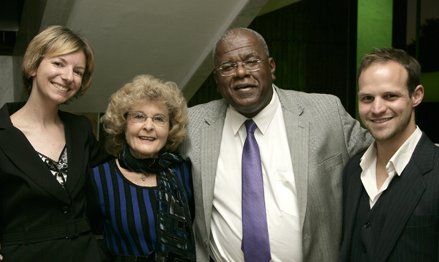Latest News Archive
Please select Category, Year, and then Month to display items
09 December 2020
|
Story UFS entral academic advising team
|
Photo Pixabay

It wasn’t easy, but we all got to this point because we stayed calm and made the effort to learn on even when it was difficult.
The University of the Free State (UFS) has remained committed to supporting you in every way possible, and as you prepare for the final assessments, remember to access the support tools you will need in order to successfully complete the 2020 academic year: https://www.ufs.ac.za/toolsforsuccess
Main exams are running from 30 November to 19 December 2020
All of the best, and break a pen in your upcoming final assessments. For those of you who will be graduating, we cannot wait to see you in that graduation attire; and those who still have some way to go, we cannot wait to serve you again in 2021 as we continue the pursuit of academic success!
Below are five main study tips that you can use for final assessment success:
1. Set a realistic study schedule
You might think that studying for eight hours straight for four days before the exam, will help you get through the work in time. See final edition of the #UFSLearnOn for more information.
2. Structure and organise your work
If your notes are organised, it is also easier for your brain to recall information, even when you become nervous during exams.
3. Practise with an old exam/semester test paper
Practice makes perfect, and although the final assessments might look different in how they are administered, it will still help to practise using old tests and exams.
4. Adapt your strategies to the content
What works for one module or even one learning outcome, might not be effective for another. You need to continually adapt your note-taking and study approaches. See #UFSLearnOn final edition for different study methods.
5. Healthy body, healthy mind
Your brain needs optimal care to perform at its best, and getting physically active (even if it is by jumping in one spot if space is limited) forces your body to release neurotransmitters responsible for positive emotions, which assist in retaining information in your memory …
Download the final edition of #UFSLearnOn that points you towards the resources you’ll need to ace your final assessments and end 2020 off on a high note!
'England, the English and the problem of education in South Africa.’
2013-09-26
|
 |
Attending the lecture were, from the left: Dr Susan Brokensha, Senior Lecturer: Department of English; Prof Rosemary Gray, Professor Emeritus (Honorary Life Vice-President of the English Academy of Southern Africa); Prof Jonathan Jansen; and Dr Thinus Conradie, Lecturer: Department of English.
Photo: Johan Roux
26 September 2013 |
Prof Jonathan Jansen: Lecture
The university celebrated the life of one of South Africa's most renowned art critics, hosting the 2013 English Academy’s Percy Baneshik Memorial Lecture on the Bloemfontein Campus.
The keynote lecture was delivered by Prof Jonathan Jansen, Vice-Chancellor and Rector, who joined a distinguished list of speakers to have delivered the lecture. Presented annually by the English Academy of Southern Africa, an association dedicated to promoting the effective use of English as a dynamic language in Southern Africa, past speakers include Prof Es’kia Mphahlele, Prof Njabulo Ndebele, Dr Alan Paton and Prof Albie Sachs. The lecture is hosted at venues across the country and this year Bloemfontein paid tribute to Percy Baneshik.
In his speech Not even colonial born: England, the English and the problem of education in South Africa,' Prof Jansen addressed the dilemma of the politics of language in both school and university education today.
Talking about the dominance of English in schools, Prof Jansen said it is the language of choice because indigenous languages are so poorly taught. "Simply learning in your mother tongue is absolutely no guarantee of improved learning gains in school. The problem is not the language of instruction; it is the quality of teaching, the knowledge of curriculum and the stability of the school."
Prof Jansen told the audience in the CR Swart Hall that Afrikaans-exclusive, or even Afrikaans-dominant white schools represent a serious threat to race relations in South Africa. "You simply cannot prepare young people for dealing with the scars of our violent past without creating optimal opportunities in the educational environment for living and learning together."